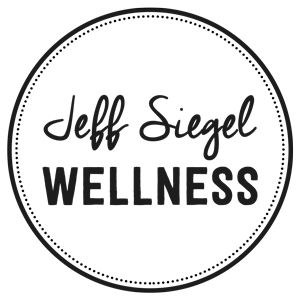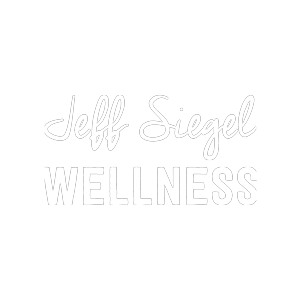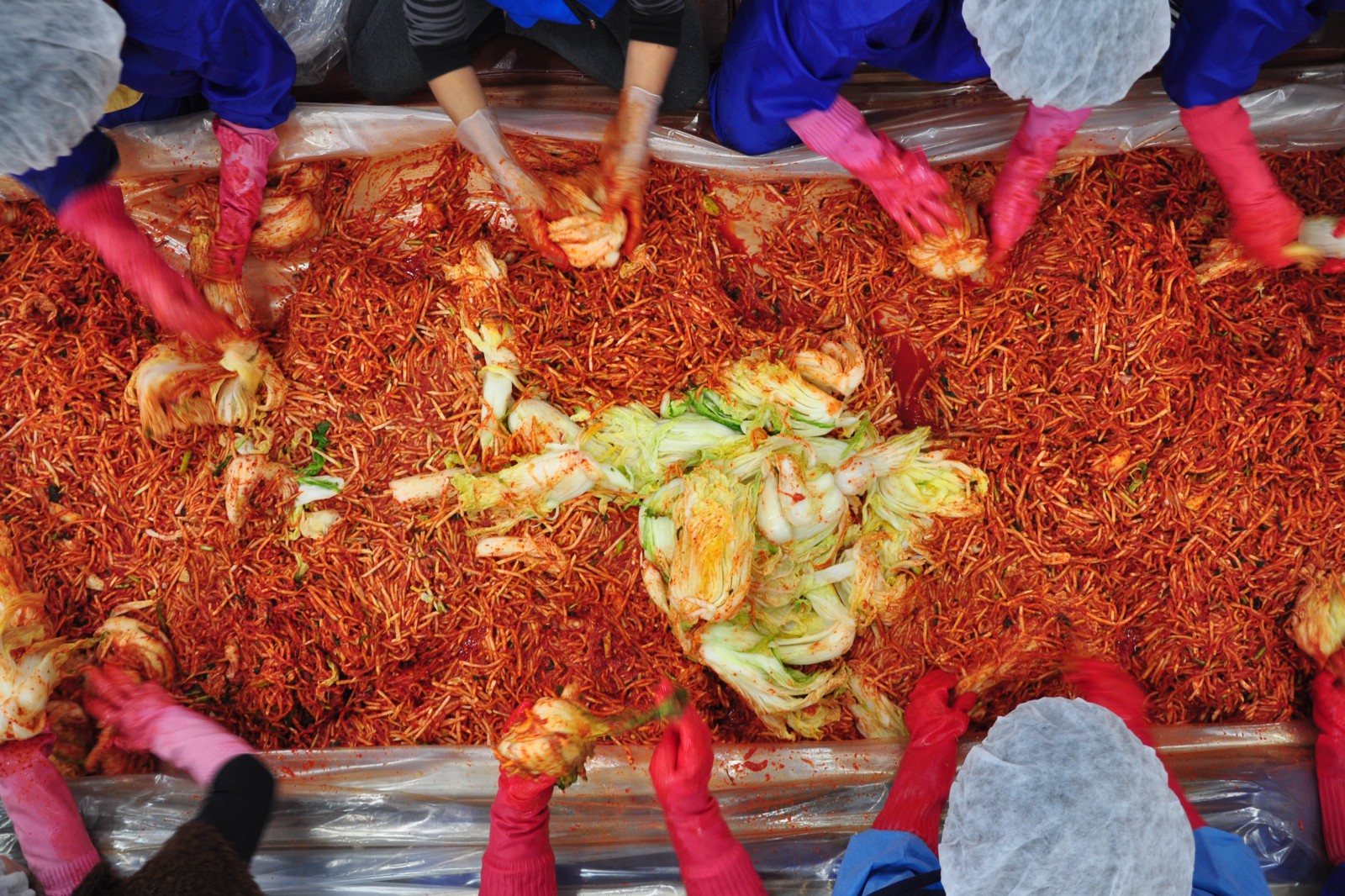For most of human history, there was little to no choice about what food to eat. Whatever you could scavenge or hunt was dinner.
When agriculture became the norm, food choices expanded, but not by much. Whatever you could grow yourself and trade with a few neighbors became dinner.
Only very recently in human history has the food marketplace become cheap, globalized, and varied. We now have what most of our ancestors never had when it came to food: Choice.
With choice comes responsibility. We no longer want to just eat to survive. We want to eat to thrive. This is a privilege unique to our time in history. And frankly, it’s driving us nuts.
So please stop asking whether a food is “healthy?”
I appreciate your intention to optimize your eating, but the truth is that you are asking the wrong question.
The Problems with the Current Way of Thinking About Health Food
“Health food” is misleading at best and destructive at worst.
First, the idea of healthy and unhealthy food makes us think in black and white terms about a topic that is way too complex for such oversimplifications. Certainly, some foods may be beneficial in most cases while others may be toxic, yet the effects usually have more to do with the amount eaten rather than the food itself. [See Hormesis to learn more.]
Second, labeling a food as “healthy” implies that health exists in that food. This reduces health to a thing that can be frozen in time and put away for future use. It can’t. Health shouldn’t be used as a noun. It’s a verb.
Lastly, all this “healthy-profiteering” becomes a convenient marketing ploy to sell this ill-defined thing called “health.” The sad part is that this branding often works to the detriment of the well-intentioned consumer.
When “Healthy” Backfires
The issue is what researchers call the “health halo” effect. This refers to how people overestimate the healthfulness of a food based on a marketing claim or personal belief. For example, people tend to assume that foods advertised as “natural,” “organic,” “low-fat,” etc., have fewer calories. The result is that people tend to over-consume food they perceive as “healthy.”
In fact, studies have found that when people believe they are eating a healthy food opposed to an indulgent one, levels of the hunger hormone ghrelin increase so they actually feel hungrier and eat more in response. A counterproductive response from believing in “health foods.”
What is Health Anyway?
Part of the issue is that there’s no single agreed upon definition of “health.”
Most of time we think of health in terms of what it is not, namely disease and sickness. But we often don’t acknowledge the positive side of health: the ability to live with enthusiasm and poise within a body that functions well.
According to The Miriam Webster Dictionary, “Health is the condition of being sound in body, mind, or spirit: A condition in which someone or something is thriving or doing well.”
Whatever definition you ascribe to, there is one commonality: health can only be found in living systems. Health necessitates some process of growth and decay. A dead thing cannot be healthy.
Therefore, a single food isolated from the person who eats it cannot warrant the claim of health. Without your ability to transform food’s energy and nutrients into a dynamic expression of who you are, it has no special power.
Health arises from the interactions between you and what you eat. This means what is healthy for you may not be healthy for everyone.
Commoditizing Health: From Individual Interactions to One-Size-Fits-All Products
Look in your pantry and see how many products are brandished with “health” claims. How many times have you been sold on the idea that this product or supplement is healthy?
· Is broccoli a healthy food? Most people would say yes.
· Does eating broccoli instantly make you healthy? No.
· If you eat broccoli everyday, will it make you healthy? Who knows?
· What about frozen broccoli vs. fresh? Organic vs. conventional? Raw vs. Cooked? Which is healthier? It depends.
· What if you wake up at 3am to eat 2lbs of broccoli? Is that healthy? Your digestive systems might argue otherwise.
· What if you don’t like broccoli, can you still be healthy? Sure you can.
The point is that it is nearly impossible to say with confidence that a food is universally “healthy”? You always must consider how much you’re eating, why you’re eating, and how you’re eating. You always must consider your psychology, physiology, endocrinology, and genetics. You simply cannot know how a food will affect the “soundness of your body, mind, and spirit” until moments, days, or even years after you’ve eaten it.
Therefore, and this is worth remembering,
The only person who has the right to tell you whether a food is “healthy” is your future self.
The Challenge of Measuring Health?
The only way we can truly evaluate the healthfulness of a food is by observing your general state across time and drawing inferences and assumptions about how a specific food affected you. You can look back on your life and notice what foods generally make you feel satisfied, nourished, and energized. And you can look back and see what foods tend to leave you tired, moody, bloated or feeling gross.
The difficulty is that such retrospective observations are imprecise. They are only trends and weak correlations. Unless you can account for all contextual variables that go into how a meal affects you (e.g. the ambiance, company, pace of eating, composition of food, etc.), you’re always going to be making a lot of assumptions.
This is why nutritional research is so difficult. The myriad of variables in any eating situation is extremely hard to control. Plus, individual responses to the same food can be radically different due to things like genetics, differences in gut bacteria, age, and a bunch of other physiological factors.
If you only look at a few biomarkers of health (i.e. inflammation, blood sugar, etc.), you get a really limited picture of health. And this is largely what we’ve got when we look at nutritional research — a lot of averages based on short-term biochemical effects. This is fine for pharmacists but not all that useful for those of us who want to eat so we have energy today and pizazz tomorrow.
But No One Really Believes Marketing Claims
Sure you could say that any reasonable person doesn’t actually buy into the health claims made on food products. You might balk that I’m being hyperbolic or making a semantic argument.
Maybe I am.
Nonetheless, I feel the necessity to move away from these frozen and limited conceptions of health. They only misdirect us from what actually matters — the sustainable flourishing of our mind, body, relationships, and environment.
So Now What?
When we turn towards the variable and relative nature of what it means to live healthfully, it should make sense why asking whether a food is healthy is the wrong question.
Real health is not something you can buy, trade, or get rid of when you no longer need it. I cannot sell or give you my health. Nor can I buy health from a store, bar, or supplement.
So let’s stop wasting energy looking outside ourselves for the perfect health food. It doesn’t exist.
A better question is perhaps asking ourselves what we know about a food with 100% certainty? What are we assuming based upon past experience? What ideas are we believing that have been told or sold to us?
We cannot look to the marketplace to define or direct our health. We must look inside ourselves. We must ask whether eating this food will bring us satisfaction, nourishment, and energy right now AND in an hour, a day, and a month from now?
To make good on this gift of food choice means we must also exercise the gift of human forethought. It’s not easy to think ahead and imagine how our food today creates our self tomorrow. But this is the responsibility we’ve been given, whether we like it or not.
If you’re searching for a better guiding question to ask, start here:
Will eating this food negatively impact the wellbeing of my future self?
~ Jeffrey Siegel, past, present, and future
p.s. If you found this useful, share with your friends and click on the heart below to let me know! You can also follow me on Instagram and Facebook.
p.p.s. I love broccoli
I’m Jeff Siegel, a wellness coach and mindfulness teacher, helping people upgrade their habits and improve their health. For free bi-monthly wisdom on how to eat, move, and be healthier, sign-up for my newsletter. If you’d like to explore working together, you can schedule a private 30-min consultation call with me.




1 Comment